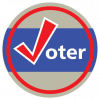Let's talk about federal grants!



I'm interested to hear from our community about federal grants. Is your organization competing for and winning federal grants? Or have you been unsure or unready to jump into the federal grants pool?
For those who are competing for federal grants, what advice would you give about what makes federal grant seeking different from applying for foundation grants? And what's the same?
Our team at Grants Plus has assisted organizations across the country, both large and small, to apply for (and win!) federal grants. In our experience, there are some fundamental differences and important factors to anticipate when applying for federal grants:
- Federal grants are less "relationship based" than foundation grants, but that doesn't mean you shouldn't still reach out before you apply! We always encourage our clients to contact the federal funding agency before applying. This will give you the opportunity to clarify anything that’s unclear about the application instructions and process, as well as learn if there’s anything that might disqualify your organization or give your submission a competitive edge.
- A project plan and timeline is everything! Every time we begin a federal grant writing project with a client, our first step (after reviewing the funding announcement of course) is to develop a plan that outlines the components to be prepared (including all attachments), who is accountable for each step and who needs to be involved (don't forget to identify community partners if required!), and a deadline for every step and stage. This keeps the project on track from the beginning.
- Don't forget to register. Registration can be complicated, requires multiple steps and a waiting period, and must be renewed annually. We recommend beginning the registration process six weeks prior to an application deadline.
Ok, I'd love to hear from you! What advice would you share, or questions do you have, about applying for federal grants?
For those looking for a resource to help them pursue federal grants, especially as relates to the continuing pandemic, you can check out our Grants Plus Guide to Emergency Federal Grant Seeking: https://grantsplus.com/guide-to-emergency-federal-grants-during-crisis/
Comments
-
I agree completely with your assessment above. In addition, I would advise new applicants to double check if there is a match requirement and be sure to have a plan for that. Check if they allow your full indirect rate. Even if you have a federally approved indirect rate they sometimes cap it as 10 or 12%. If you dont' have a federally approved rate you have to use the 10%. I would have your accounting folks review the 424 if they haven't done one and go through the tutorial, they are different than most budget forms. Double check all the formatting requirements - spacing, font, page limits.
2 -
Good advice to be sure to use the 10% de minimis indirect cost rate if your organization doesn't have a negotiated rate. There are a few budget line items to which the de minimis may not apply, so be aware of that as well.
I'd also add a comment about the importance of being aware of post-grant reporting requirements as you consider pursuing a federal grant. Ensure that you have the staffing to oversee what is typically a more rigorous reporting process in comparison to private foundation grants.
2 -
All of the comments are so true! I'd add that the application guidelines are much more extensive and detailed, the award decisions are often heavily influenced by a points-based assessment system, and the narratives are longer than those required by most private funders.
2 -
For those who are competing for federal grants, what advice would you give about what makes federal grant seeking different from applying for foundation grants? And what's the same?
It is interesting that people haven't commented about how federal grants are similar to foundation grants. Some foundations have become very similar to federal grants including:
1) They have a theory of change you should study to see where your program best aligns.
2) The narratives are often between 10-15 single spaced pages.
3) More and more, they are providing technical assistance calls to help organizations being successful with their application process.
4) While the RFP may be shorter, the requirements are often getting more complex, and I think project plans and timelines are valuable for all grant applications, especially for the busy grant professional with many grant applications due at the same time!
Julie Assel, GPC
President/CEO
3 -
Thank you Dana for starting the discussion and thank you Julie for your helpful comments.
While all the comments were helpful, I am especially interested in any experiences and or recommendations about the Competing for Federal Grants training programs from The Grantsmanship Center. I attended (and sponsored for my community) their basic week-long training program 20+ years ago which was most valuable.
I am a Community (and People-Led) Economic Development specialist. The primary reason I am interested in the competing for federal grants training is to get better prepared to help communities and community economic development agencies leverage the 200+ billion in stimulus funding that will be distributed over the next 2 years.
Today I attended an EXCELLENT training from the Economic Development Administration on the new 3 billion dollar funding through the American Rescue Plan which was comprehensive and most helpful. Given the fact that federal agencies are doing such an effective job of providing essential details of these new programs, I am now wondering if the investment of nearly $1,300 is the highest and best uses of our organizations funds. Thank you for any helpful input!
1 -
Hi everyone! Here are some Foundant resources on the topic you may be interested in. The first is a blog, the second is a webinar. 🙂
Kara Adams, M.Ed., CAE (she/her/hers)|Community Manager|kara.adams@foundant.com
Headquartered: Bozeman, MT| Remote Location: Chicago, IL | Direct: 312-802-1374 |www.foundant.com|
2 -
Thank you Kara for providing these resources!
I am a Community (and People-led) Economic Development specialist dedicated to helping Expand the Circle of Success Education, Empowerment, and Entrepreneurship. As a former employee with the Departments of Housing and Urban Development and Commerce for 12+ years, I believe we presently have an extraordinary opportunity to leverage federal grants, especially the 200+ billion dollars being provided to communities through the American Rescue Plan, for the optimal benefit of community residents, businesses, and nonprofits. That is why I am so grateful for any resources like these that could help individuals, organizations, and communities discover how to harness their individual and collective powers to help shape the future and destiny of their communities.
I am definitely looking forward to learning more from @JulieAssel, Thanks again!
2 -
After 15 years primarily writing private foundation grants, I got a new job working at a university. It was a bit intimidating to move to federal grants. The first proposal I helped write resulted in a 6 million dollar award! I feel like I have gotten my feet wet but I still find myself befuddled by how different one department's approach is so different than another department's approach (e.g,, NIH vs. NSF Vs. ED vs. HRSA etc.). I'm so grateful for forums like this one where I can learn from other grant professionals!
4 -
To Cecilia's point, while our company has a federal grants training series (of which Pursuing Federal Grants is the first session), we are looking at providing trainings in 2022 which are tailored to each federal agency, including the ones Cecilia has on her list and others like DOL, HUD, and SAMHSA.
Julie Assel, GPC
President/CEO
3 -
Please add me to the waiting list!!!!
2 -
Just wanted to comment on Julie's observation about Foundation grants looking more like Federal grants. She is so right. What I have noticed is that some foundation grants are getting more complex in their questions, want logic models, etc and more financial info than even some federal grants for a fraction of the funds! I know it important for all of us to have diversified funding streams but if you write a high volume of grants, I would look carefully at the ROI on your time. As someone mentioned above. Federal grants are generally much larger.
The other piece of advice that would concur with Barbara is the scoring rubric or point allocation that is usually provided. I refer to those often as there is sometimes more detail in the scoring about what they are looking for than is provided in the instructions. Also, if you have the time, ask a seasoned person to score your proposal using the scoring template. it has really helped me get high scores.
Best of luck!
1 -
As we know, an organization can be eligible to apply to a federal competition (an eligible applicant entity) but won't actually be eligible to win an award unless it can respond to all of the must-dos, must-haves, and documentation requirements sprinkled throughout the extensive application guidelines. I advise organizations to do a four-part assessment of eligibility before applying for a federal grant. First, of course, determine if the type of organization is an eligible applicant. Second, assess the review criteria to determine if there are in-your-face deal killers that the organization can't get past. Third, if all is good so far, do an hours-long study of the full guidelines since the review criteria are expanded and defined in more detail throughout those (what can be) 85 or more pages of instructions. Organization's sometimes think they're great applicants after reviewing the scoring rubric, but full study of the guidelines can sometimes tell a different story. And finally, look at the number of awards expected. Spending the extensive time and effort needed to compete is a big consideration. Putting that sort of effort into a competition that will result in 15 to 30 awards (and more is better) is different than spending that time in a competition that will result in one or two awards. If the organization has such a strong position that it's ready to enter the one or two award competition, great. But I do encounter lots of organizations that keep on the rose-colored glasses when assessing competitiveness. Assuming everything lines up, the program responds to a defined community need and syncs with the organization's mission, the final go- no-call hinges a great deal on a honest assessment of competitiveness.
1











